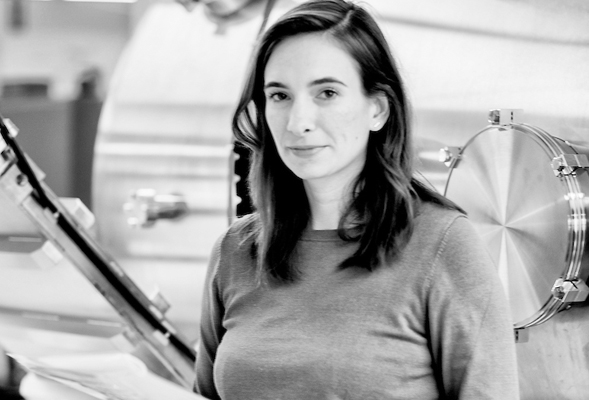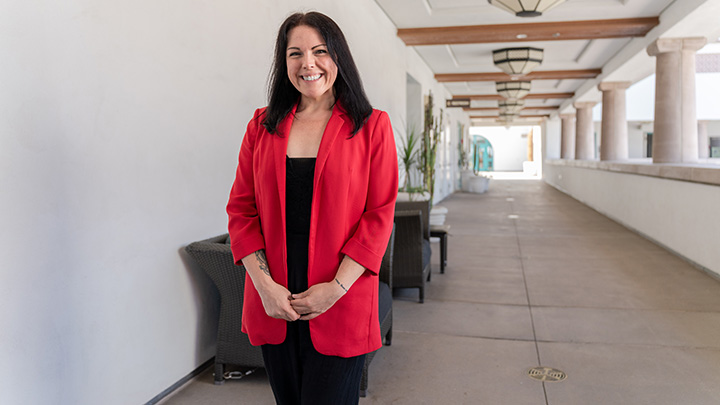Trampoline Dreams
SDSU Alumna Enters the Space Race

This story is featured in the spring 2019 issue of 360: The Magazine of San Diego State University.
At age 9 or 10, Natalya Bailey (’08) began sleeping on the trampoline outside her Oregon home and watching space stations and the spent stages of rockets pass overhead.
“It was a rural area; there wasn’t very much light pollution, so I was able to do a lot of stargazing,” recalled Bailey, who would become a rocket scientist and CEO before age 30. “I spent a lot of time thinking about aliens. My parents were thankful I didn’t end up deciding to study aliens.”
Bailey now runs Boston, Massachusetts-based Accion Systems, which makes tiny ion propulsion engines for spacecraft. The engines are not only more affordable than conventional spacecraft engines; they also eliminate the need for the heavy tanks and toxic propellants of their much larger counterparts.
Accion’s first two engines in space were purchased by the Irvine Unified School District in California last year. Launched in November and December, they maneuver satellites built by the district’s high school students to perform scientific experiments and explore new space technologies.
Bailey said the trampoline dreams that eventually took shape as Accion Systems began to solidify at San Diego State University, where she majored in aerospace engineering.
She recalled learning “how much innovation there was still left to do in the field of space propulsion. It just sounded so cool and interesting—like it was a field just waiting to be pushed forward.”
Bailey launched her company while pursuing a doctoral degree at the Massachusetts Institute of Technology.
“That got very messy and I was facing a decision of dropping out to do the company full time, or pausing the company to finish my Ph.D.,” Bailey said.
“As kind of a theme in my life, I turned to my mentors and peers and support network. I think it’s really important for founders to be able to recognize where they’re going to need additional support, and to be able to ask for it and get it from the right places,” she said.
“You’re never going to start a company and be the complete perfect package right off the bat, and so the sooner you can get comfortable with that, the better.”
In the end, she completed the Ph.D. and got Accion off the ground in 2014 with cofounder Louis Perna. As a woman in a field dominated by men, Bailey has become something of a celebrity. Inc. recently named her one of the 100 top female company founders in the country, noting that Accion has raised $10.5 million in venture capital and booked $7 million in U.S. Department of Defense contracts. She also appeared last year in MIT Technology Review’s prestigious annual list of Innovators Under 35.
Bailey sees Accion’s future as a participant in the democratization of space by changing what spacecraft can do.
“The small satellites are really exciting because they reduce the cost of operating something in space by several orders of magnitude. So the people that can utilize space are not just the governments of rich countries and HBO. Now high school students can do planetary science by watching a satellite,” she said.
Satellite images of the planet can also help predict critical problems before they become crises, Bailey noted. They can show water levels of basins in the Amazon to help alert local populations of possible drought conditions. And they can potentially predict malaria outbreaks by assessing soil moisture and other determining factors.
“It’s a really exciting time,” Bailey said. “I don’t think it happens that often in an industry, but right now, it’s a great time to be a space startup.”



